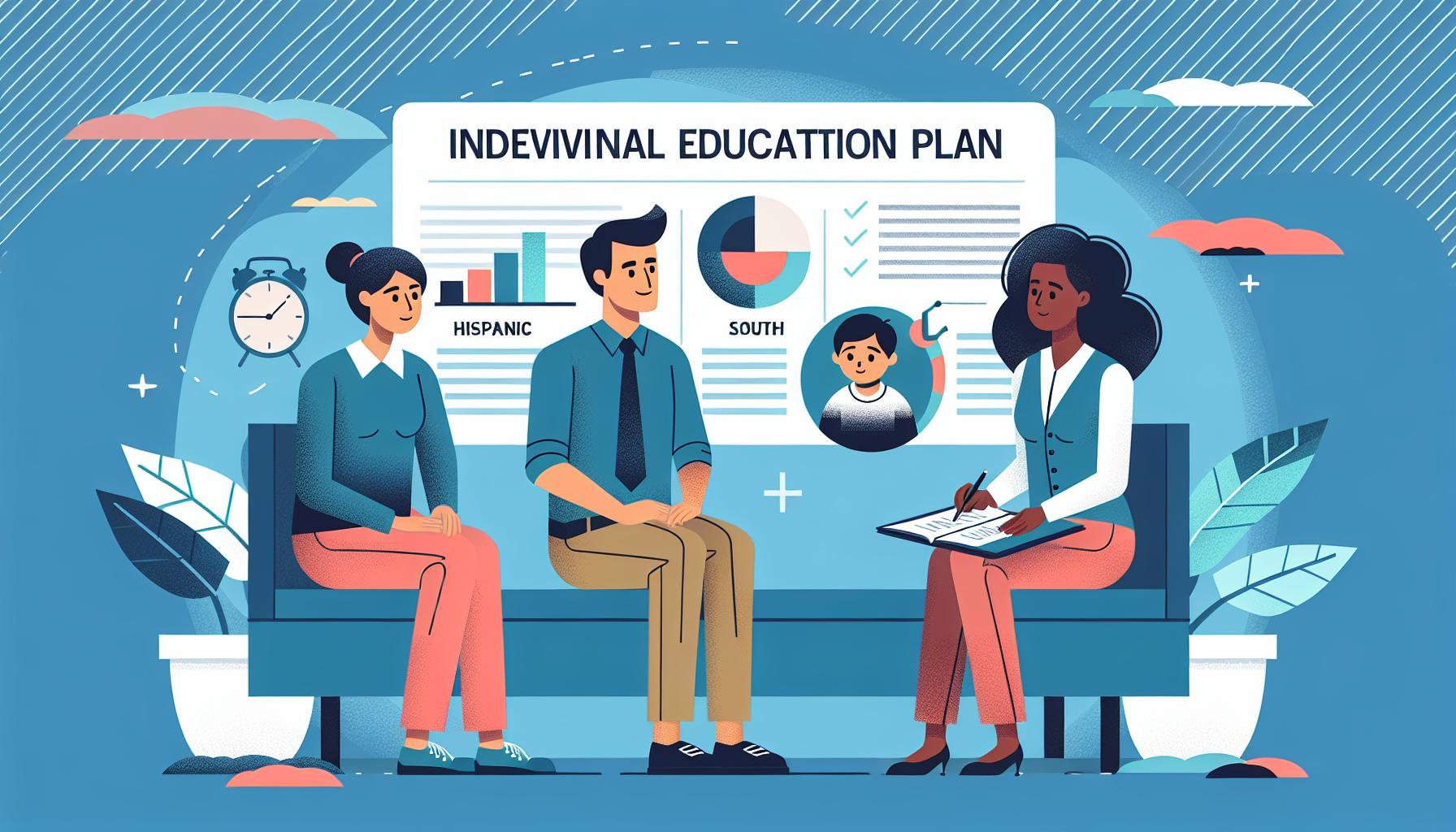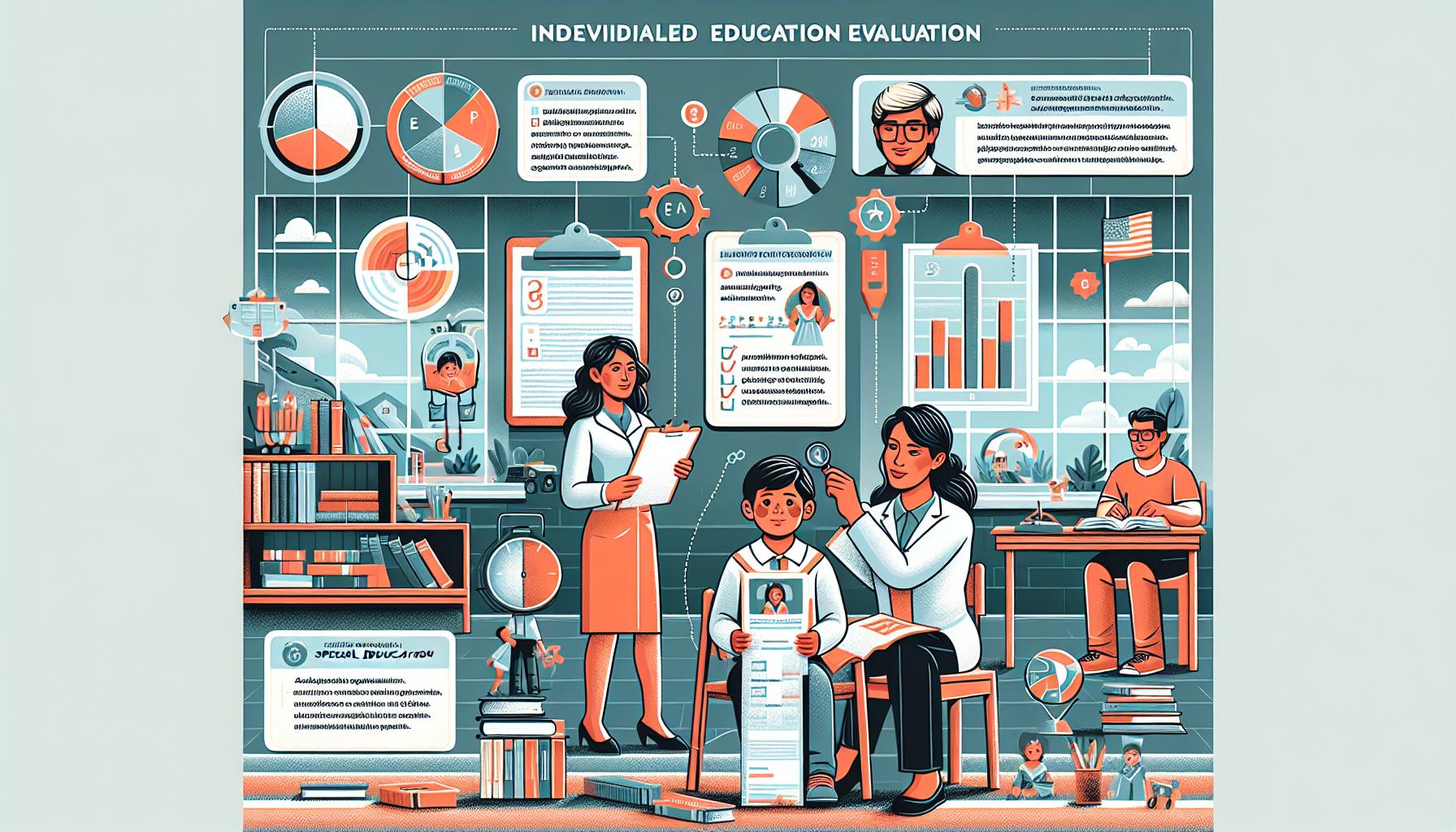Understanding the Role of an Independent Educational Evaluation (IEE) in Special Education
Navigating the world of special education can feel like you’re lost in a sea of acronyms. One acronym you might come across is IEE, which stands for Independent Educational Evaluation.
An IEE is a critical tool in your arsenal as you advocate for your child’s educational needs. It’s an evaluation conducted by a qualified examiner who isn’t employed by your school district.
This evaluation provides an objective view of your child’s capabilities, functioning, and needs. It’s often used when there’s a disagreement between parents and schools about a child’s special education services. Stay tuned as we delve deeper into what an IEE is and how it can be beneficial in special education.
Key Takeaways
- An Independent Educational Evaluation (IEE) in special education is an objective assessment of a child’s educational needs, conducted by a qualified examiner not employed by the school district.
- IEEs are particularly crucial when discrepancies arise between parents and schools regarding a child’s special education services, offering an alternative perspective without necessarily countering the school’s evaluation.
- The primary use of an IEE is to provide a comprehensive overview of a child’s academic, social, emotional, and behavioral development, guiding decision-making about their educational pathway.
- The cost of an IEE may be covered by the school district in specific circumstances, potentially making it a significant investment in your child’s future.
- The qualifications of the IEE evaluator are vital, as they should meet certain professional standards and have extensive experience in addressing unique educational needs.
- Opting for an IEE may be apt when there are disagreements with the school’s evaluations, a delay in school-provided evaluations, or when the existing Individualized Education Program (IEP) seems ineffective.
- The benefits of an IEE include a more detailed analysis, encouraging schools to better accommodate a child’s needs, and assisting in advocating for a child’s right to an appropriate education in potential disagreements or legal disputes. However, it’s significant to remember that IEEs are not a cure-all solution but rather a crucial part of the special education decision-making process.
What is an IEE in Special Education?

In special education, an Independent Educational Evaluation (IEE) is a pivotal tool that you, as a parent, might want to understand. It’s not just an assessment conducted by a random professional; it’s an evaluation done by a qualified examiner outside your child’s school district. The primary strength of an IEE lies in its objectivity, which can provide a fresh perspective on your child’s education needs.
An IEE covers the same ground as a school-conducted assessment but often digs deeper. They’re comprehensive; they don’t leave any stone unturned. These evaluations can include information on your child’s academic performance, social, emotional development, and behavioral aspects. The findings can, in turn, help you make the best decisions about your child’s education.
When might you need an IEE? Typically, parents resort to an IEE when they believe their child’s educational services are lacking or do not agree with the results from the school’s evaluation. It’s crucial to note that while an IEE gives an alternative perspective, it doesn’t necessarily override the school’s assessment. What it does provide, however, is a counterbalance which can be invaluable when advocating for your child’s educational needs.
Here’s the real kicker: the cost of an IEE can potentially be covered by your school district under certain circumstances. If you disagree with the school’s evaluation and request an IEE, the school may either agree to pay or initiate a Due Process Hearing to prove their assessment is appropriate. The intricacies of the IEE process and how it affects your child’s education journey will be further examined in subsequent sections. Building your understanding of an IEE is the first step in harnessing this powerful resource.
Importance of IEE in Advocating for Your Child

Independent Educational Evaluation (IEE) sits at the crux of championing for your child’s educational needs. It’s a powerful tool, a beacon of light that guides your journey as you navigate through the maze of special education.
Understanding your child is critical. You are their biggest advocate – their cheerleader. This in-depth knowledge about your child’s real needs, combined with an objective outside evaluation, gives you the foundation you need to fight for their right to an appropriate education. You can trust an IEE to provide a comprehensive, unbiased look at your child’s academic, social, emotional, and behavioral capabilities.
IEEs are especially important when a disagreement arises regarding the school’s evaluation. Rather than merely accepting the school’s assessment, an IEE gives you the opportunity to explore your child’s capabilities from a different perspective. It provides a fresh and impartial viewpoint, shedding new light on any hidden talents or unidentified challenges your child may have. Coupled with your intimate understanding of your child, an IEE can be instrumental in presenting a stronger case and turning the tide in your favor.
A crucial point to note is that an IEE isn’t just an expense. It can be an investment in your child’s future. The cost might even be covered by the school district under specific circumstances. Therefore, digging deeper into the provisions of IEE could lead to substantial financial aid.
Moving forward, let’s delve into a deeper understanding of IEE in the next part of the article. We shed light on when and why an IEE can be of importance and how you can proceed if you think an IEE is right for your child. We’ll also touch upon understanding when the school district might step in to shoulder the cost. So, brace yourself and let’s continue to unravel the world of IEE with us.
Qualifications of the Evaluator for an IEE

When you’re considering an IEE, it’s crucial to know about the evaluator’s qualifications. Typically, these experts need to meet certain professional standards and have extensive training in dealing with special educational needs.
Keep in mind that the IEE evaluator should not only have professional credentials, but also should possess relevant experience in assessing and addressing a child’s unique needs. It’s not enough to merely have a basic understanding of educational structures and principles. They need to demonstrate an in-depth understanding of a child’s specific condition to accurately gauge their educational needs.
In most cases, evaluators have backgrounds in:
- Special education
- Child psychology
- School psychology
- Educational psychology
- Speech-language pathology
Remember that evaluators should not hold any biases, for the integrity of the IEE process to be preserved. Their primary role is to provide an objective perspective that helps in developing an effective and individualized educational program.
Here’s a short summary of the qualifications that an IEE evaluator should possess:
| Professional Criteria | Importance |
|---|---|
| Extensive educational background | This ensures that the evaluator is competent in understanding child psychology, educational processes, and associated principles |
| Relevance of experience | Prior work experience that aligns with a child’s specific condition will enhance the precision and accuracy of the assessment |
| Objectivity | This guarantees an unbiased perspective, thereby enhancing the integrity of the evaluation |
While the evaluator’s qualifications are important, you also ought to look at their track record. It’s useful to consider other parents’ experiences with the evaluator and assess their reputation in special education circles. Your child’s future education depends largely on the quality of the assessment, so being thorough in choosing the right professional is essential. It’s yet another factor in making sure your child is set to benefit from an IEE and make the most of their educational journey.
When to Consider an IEE for Your Child
Contemplating on when is the right time to consider an IEE for your child can be challenging. Every child’s needs and circumstances are unique. However, certain scenarios often indicate that seeking an IEE might be beneficial.
Firstly, if there’s disagreement with the school’s evaluations, it’s worth considering an IEE. Schools conduct evaluations, but they might not always fully capture the child’s strengths and areas of need. An independent evaluation provides a fresh perspective and can shed light on aspects the school might have overlooked.
Secondly, the necessity for an IEE may rise when the school does not provide an evaluation in a timely manner. Infrequent or delayed evaluations can hinder the adaptation of the education plan to fit the child’s changing needs. Regular evaluations are integral to track progress and make necessary adjustments to the teaching strategies and supports in the child’s Individualized Education Program (IEP). In such instances, an IEE ensures your child’s development is frequently monitored, and interventions are timely.
Lastly, parents might consider an IEE if they feel the current IEP isn’t effective. An IEE can provide a more thorough understanding of the child’s needs and suggest revised strategies for better learning outcomes.
Furthermore, it’s also important to note that the results of an IEE can be used in an administrative hearing or court if parents disagree with the school’s proposed education plan. That being said, it’s crucial to understand the weight of this decision. Opting for an IEE is not always easy or cheap, but under the right circumstances, it can provide valuable perspectives and insights into your child’s educational needs.
So, remember to consider all your options, deliberate on your specific circumstances, weigh the pros and cons, and seek advice from trusted advisors before deciding on whether an IEE is the best decision for your child’s education. After all, a child’s academic journey is not a one-size-fits-all and personalizing their education based on their uniquely individual needs can make a profound impact on their overall learning experience.
Benefits of an IEE in Resolving Disagreements
Perhaps your child’s school has carried out evaluations and their particular findings don’t align with your own observations. The tests used or the interpretations provided could differ from your understanding. This is where an Independent Educational Evaluation (IEE) comes into play. It assists in resolving disagreements between you and your child’s school, bringing an objective perspective from an independent authority.
An IEE can potentially help you navigate confusing situations, giving you the data necessary to strengthen your position during consultations about your child’s education plan. The evaluator’s independent viewpoint is often free from potential biases that might exist in a school environment. Remember, knowledge is power when it comes to discussions about your child’s Individualized Education Program (IEP).
One unique advantage of an IEE is the level of in-depth analysis it can offer over the school district evaluations. The IEE evaluator conducts their evaluation with greater detail, spending more time on assessments and subsequent interpretation of the results. This thorough approach might be more effective in identifying your child’s unique educational needs.
Opting for an IEE may also summon a different type of interaction between you and the school authorities. When you introduce an external evaluation, it inevitably encourages schools to give additional consideration to your concerns about your child’s learning progress. They may then respond in a way that more closely aligns with your child’s needs.
Moreover, the right to request an IEE is embedded in the Individuals with Disabilities Education Act (IDEA). It reassures your entitlement to seek out an independent evaluation to ensure your child’s needs are accurately recognized and properly addressed.
While the benefits of an IEE are numerous, it’s important to remember they are not a panacea. Each child is unique, and their needs cannot be encapsulated in an assessment alone. Nonetheless, an IEE is an essential part of the special education decision-making process. It aids in creating a more personalized, effective educational path for your child.
Conclusion
So you’ve seen how an IEE can be a game-changer in special education. It’s not just about resolving disagreements, but about ensuring your child’s needs are accurately recognized and addressed. An IEE offers detailed analysis and an objective perspective, often leading to a more tailored education plan for your child. It’s a tool that strengthens your position in IEP discussions and nudges schools to pay closer attention to your concerns. Remember, your right to request an IEE is protected by the IDEA. While it’s not a magic solution, it’s a crucial part of the decision-making process in special education. So when it comes to advocating for your child’s education, don’t underestimate the power of an IEE.
What is an Independent Educational Evaluation (IEE)?
An IEE is a comprehensive evaluation of a child’s educational needs by a qualified professional outside of the child’s school district. It provides a meticulous analysis of the child, including their strengths, weaknesses, and specific areas requiring attention.
Why is an IEE important?
An IEE offers an unbiased viewpoint and can facilitate more personalized educational programming. It backs parents during disagreements about their child’s Individualized Education Program (IEP), urging schools to address their concerns more seriously.
Can I request an IEE?
Yes, parents have a legal right to request an IEE. This right is protected by the Individuals with Disabilities Education Act (IDEA).
What is the role of an IEE in special education?
An IEE plays a pivotal role in special education decision-making by providing a thorough and impartial assessment of a child’s needs. However, it should not be viewed as a universal solution to all challenges faced in special education planning.
How does an IEE benefit my child?
An IEE benefits your child by pinpointing their specific educational needs. It helps craft a more personalized educational experience, potentially leading to more effective learning and growth.
The post Understanding the Role of an Independent Educational Evaluation (IEE) in Special Education appeared first on Special Education Journey.
Understanding the Role of an Independent Educational Evaluation (IEE) in Special Education published first on https://special-education-journey.com/
Comments
Post a Comment